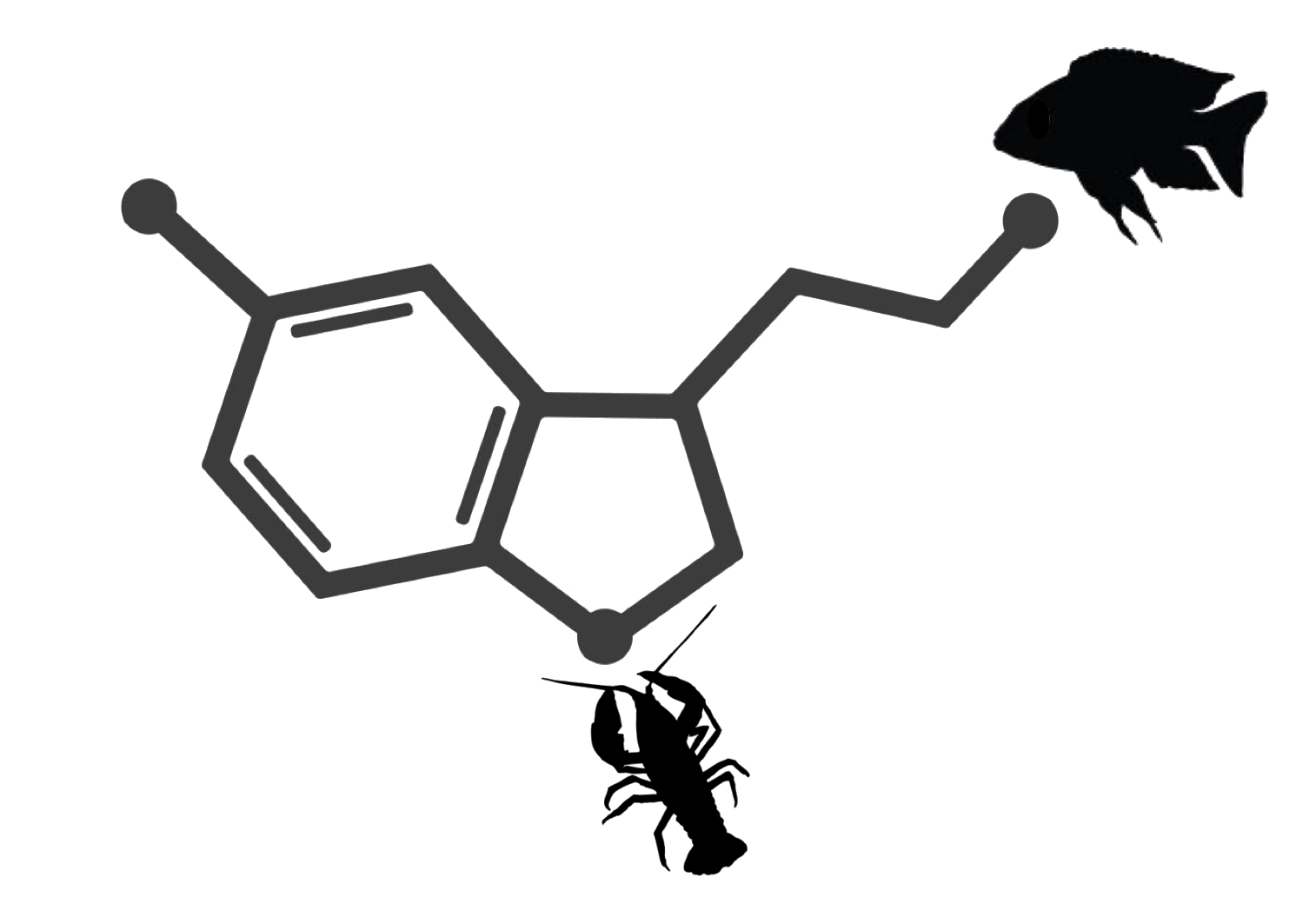A group of researchers interested in the behavioural and molecular impacts of serotonin on animals and the environment
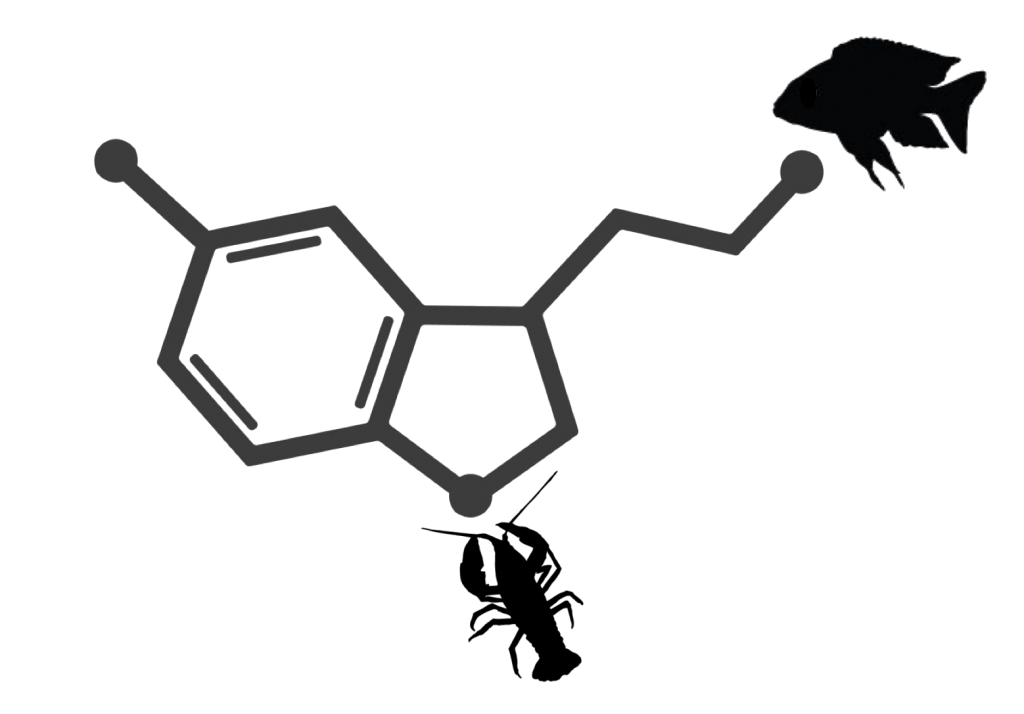
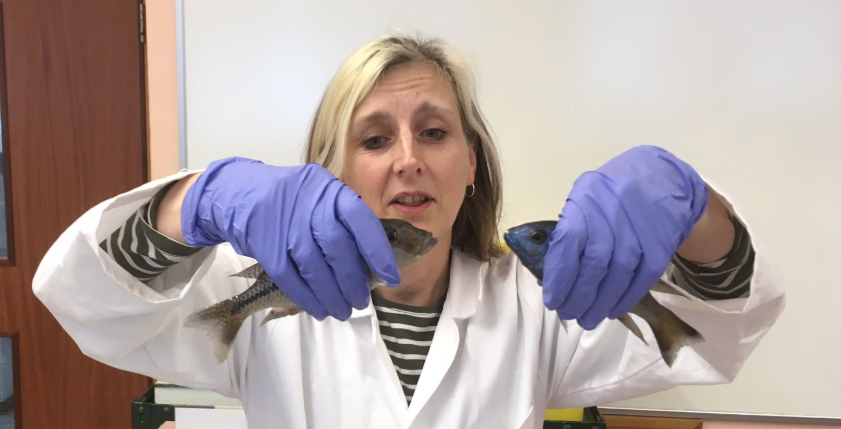
Domino Joyce
Domino became interested in ecological and evolutionary genetics as an undergraduate (UEA) and her PhD (Birmingham) was on butterfly conservation genetics. She is now a Senior Lecturer and is particularly interested in speciation, using haplochromine cichlid fishes as a study system. She aims to understand the genetic and molecular basis for the way that serotonin can affect behaviour and what the evolutionary consequences for that might be.
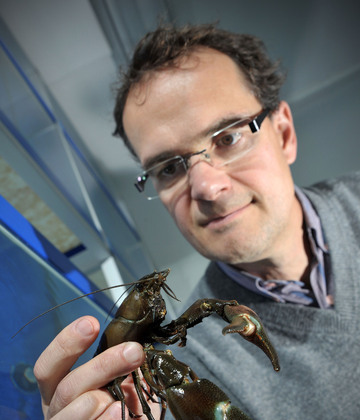
Thomas Breithaupt
Thomas’ research is driven by his fascination in animal senses and behaviours. A graduate and postgraduate student of the University of Konstanz, Germany, he discovered some novel sensory mechanisms of crustacean and fish prey detection. As a postdoc at the MBL, Woods Hole, USA, and assistant professor in Konstanz, he then shifted focus to chemical communication in crustaceans. Now a Senior Lecturer at the University of Hull his current interest is in how aquatic animals respond to natural stressors (predation, conspecific fights) and to anthropogenic stressors (noise, pollution). He would like to understand the role Serotonin plays in mediating stress responses in crayfish and how environmental pollutants interfere with the natural processes.
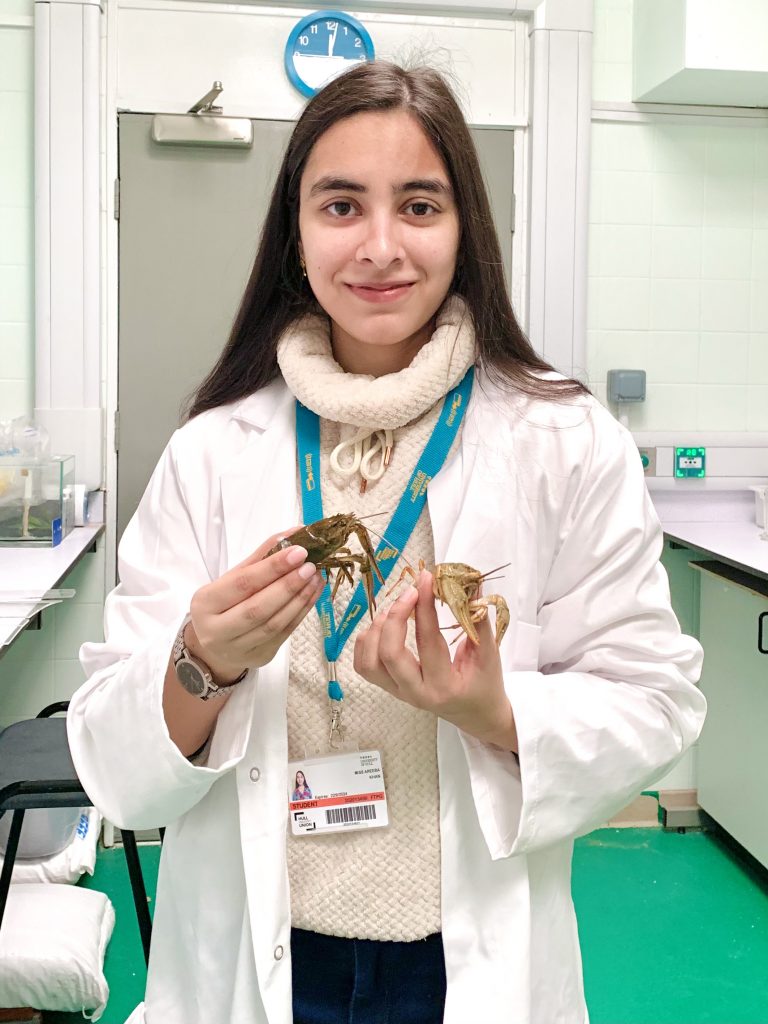
Areeba Khan
Areeba hails from a biochemistry background and has previously been involved in projects dealing with the impact of genomic linkage on the biochemistry of biological systems. She got interested in behaviour after coming across a scientific article by Dr. Thomas Breithaupt which highlighted the role of urinary signals in crayfish chemical communication. Now she is keen to couple the experience gained from previous studies with the current behavioural investigations. Her current project aims to understand the role of serotonin in crayfish anti-predatory behaviour and dominance. She is particularly interested in understanding the biochemistry of serotonin driven responses in crayfish, identifying putative stress markers and quantifying stress, anti-predatory and anxiety-like behaviour with respect to serotonin. She also aims to understand the specific role of serotonin in dominance fights. She is also very interested in investigating the impact of Pharmaceutically Active Compounds or PhACs (found in freshwater) on serotonergic regulation of crayfish behaviour.
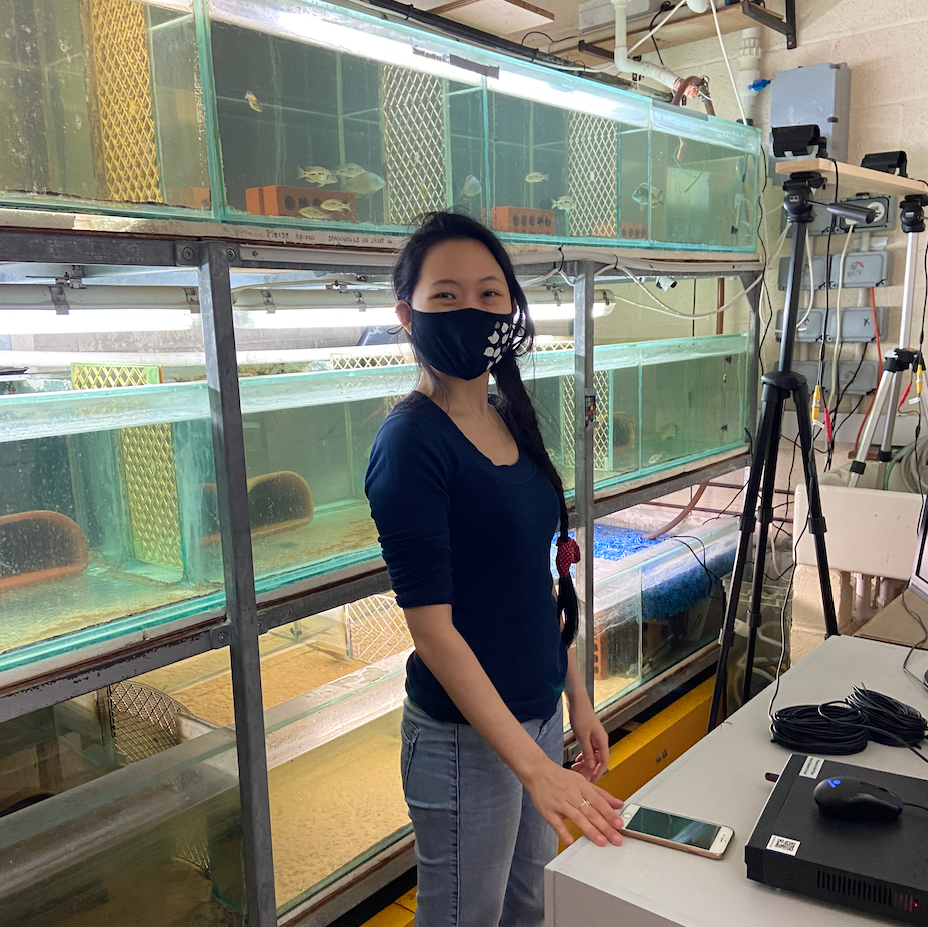
Paige Lee
Paige’s interest in animal behaviour was piqued during her BSc and MSc studies at the University of Exeter, with a focus on cognition and social behaviour in pigeons and guppies. She then joined Wildlife Reserves Singapore, where she developed a career in conservation and zoo research. In her realisation that the application of animal behaviour theories in the conservation context is under-employed, she aims to combine her professional and academic passions and fill that gap. Her PhD at the University of Hull will investigate the role of serotonin in the sexual behaviour of cichlids. Besides demonstrating how environmental pollution could impact the behaviour of aquatic life, this study may also reveal a novel mechanism for speciation resulting from reproductive isolation.
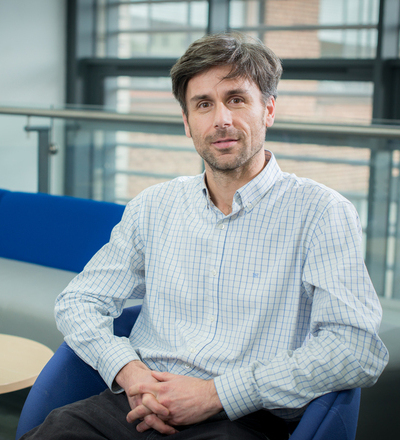
Pedro Beltran-Alvarez
Pedro did his PhD at the University of Bristol (2004-2007) funded by a Marie Curie grant from the EU. After a short stage in the European Molecular Biology Laboratory (EMBL, Heidelberg, 2007-2009), he joined the Cardiovascular Research Centre at the University of Girona (2009), where he gained a Sara Borrell Postdoctoral Fellowship from the Spanish Government (2011-2014). Pedro then joined the University of Hull in 2015 as a Lecturer in Biomedical Sciences.
The mission of Pedro’s lab is to investigate the relevance of protein post-translational modifications in the biological response to environmental changes.

Hannah King
Hannah became interested in behavioural ecology as an undergraduate at the University of East Anglia where she studied Biological Sciences. Her undergraduate dissertation investigated the effects of phenotypic colouration on shoal choice in Corydoras catfish where her interest in studying behaviour in fish grew. She is currently participating in her Research Masters course at the University of Hull where she is investigating the role of serotonin in territorial aggression using the cichlid species Astatotilapia calliptera. She also has strong interests in eusocial Hymenoptera, particularly bees, and is considering PhD research in this area.
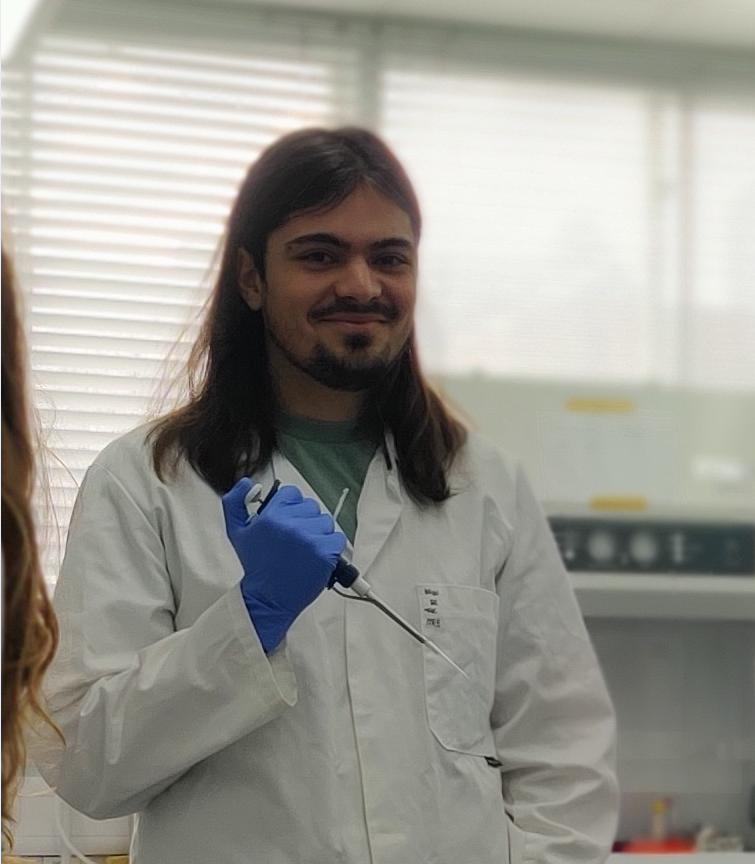
Quentin Rodriguez-Barucg
Quentin gained a biology and ecology background through his BSc (Université Paris Sud 11- France) and MSc (Université de Montpellier- France). He worked on the study of the impact of various stressors on aquatic species through a physiological approach. He studied Mediterranean species (the impact of salinity change on three-spined stickleback) and tropical species (the impact of wastewater on mangrove crabs).
For his PhD project Quentin is going to look at the impact of SSRI on various models using a biochemical approach, looking at post-translational modifications.
Thanks to his background Quentin is going to be the link between the behavioural and biochemistry aspects of the Happy Chemical Cluster.
